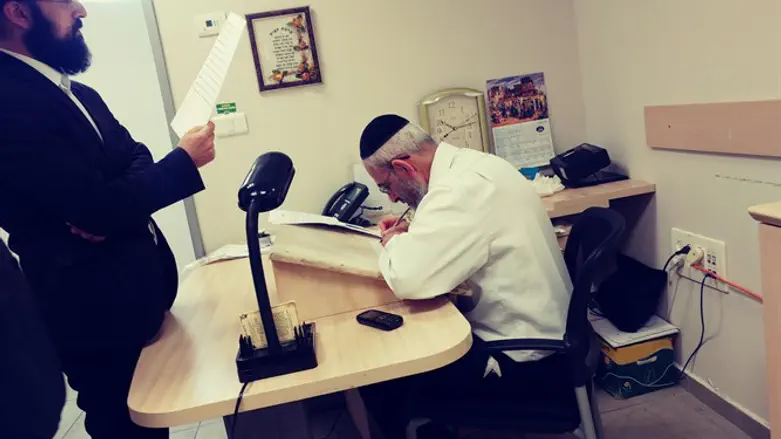
Recent cases of rabbinical courts permittingagunahs to marry by annulling their marriages retroactively using the "Afkinu" annulment ruling has aroused a storm in the world of halakha and rabbinics.
The halakhic concept of Afkinu Rabbanan kiddushin minei, Aramaic for "the Sages expropriated his marriage from him", is an halakhic principle that states the Sages have the right to expropriate (annul) kiddushin, thus retroactively annulling the validity of marriage between spouses.
According to Yated Ne'eman, the dayan HaGa'on Rabbi Avraham Sherman shlit"a, one of the outstanding disciples of Maran Hagaon Rabbi Elyashiv zt"l, testified that Rabbi Elyashiv told him that a Dayan outside of Israel who utilized 'Afkinu' completely invalidated his conversions, and the converts had to undergo the process again. Rabbi Sherman has also joined leading rabbis in strong opposition to the phenomenon of pre-nuptual agreements, holding that a divorce granted in the wake of a prenuptial agreement is tantamount to a mock divorce, and does not truly permit a woman to marry another.
The primary source of the law for "expropriation of kiddushin" is in a story presented in the Talmud in Tractate Yevamot that took place in the city of Neresh, in Babylon. A man had betrothed a little girl in such a way that the betrothal was valid only according to rabbinic law but not by Torah law.
When the child grew up, the man held a ceremony to ratify their marriage, but without formal kiddushin betrothal. During the ceremony another man came by briefly and sanctified her to himself for a wife. The Sages Rav Bronna and Rav Chananel ruled that the marriage of the second man was invalid, and the woman continued to be betrothed to the first man.
Later Sages discussing this case found it difficult to understand Rav Bronna and Rav Chananel's ruling, as on the face of it the woman was expected to be considered married to the second man. Rav Ashi explained that in principle the second man's act was valid, but "the Sages expropriated his marriage from him" because he acted unfairly by taking her from the first man: "He acted improperly, so they acted improperly with him, and the Sages expropriated his marriage from him."
In the wake of the recurring phenomenon of cases permitting agunahs using "Afikinu", Bnei Brak Av Beit Din Rabbi Dayan Yehuda Silman told Yated Ne'eman: "This isn't a new invention from today. There's much written on it by the later Acharonim sages and all of them are of the singular opinion that it's forbidden to do. When someone calls himself a Dayan and allows himself to do 'Afkinu' - that Rabbi Akiva Eiger ztz"l himself was afraid to do - it shows great arrogance and much chutzpah, and he attests on himself that he has no rabbinic tradition and isn't worthy of ruling."
Regarding the phenomenon in general, Rabbi Silman said: "It requires us to build an orderly framework so anyone who did such a thing knows he has actually moved to a different camp. We must place a clear demand that for us he can't be a rabbi and a Dayan.
"This isn't a random mishap, where someone just made a mistake and needs to correct the error. Rather it indicates a person who is liable to go astray in such a thing, and certainly cannot be in the position of a judge," he said.